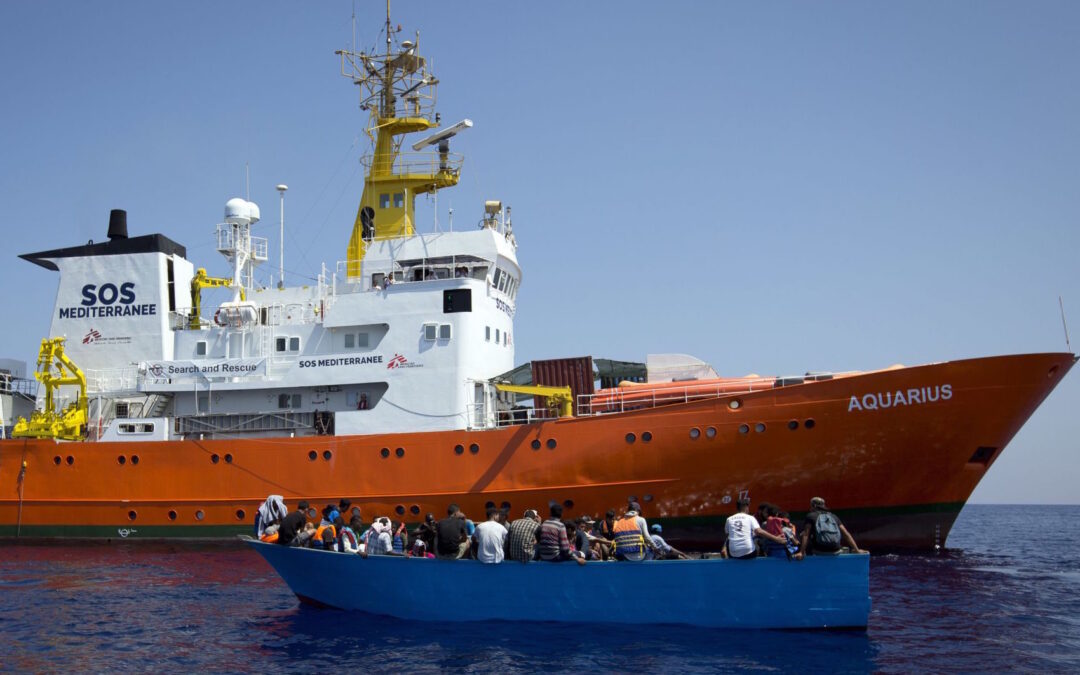
Oct 3, 2018 | Communiqués de presse, Nouvelles, Plaidoyer
Les dirigeants européens doivent agir rapidement pour aider l’Aquarius, dernier navire de recherche et de sauvetage non-gouvernemental opérant en Méditerranée, à s’immatriculer après le retrait de son pavillon par les autorités panaméennes, ont annoncé aujourd’hui cinq organisations internationales des droits de l’Homme dans une lettre ouverte (uniquement disponible en anglais).
La lettre a été envoyée aux dirigeants européens à l’occasion du cinquième anniversaire du naufrage de Lampedusa, qui a fait au moins 368 morts, les exhortant à offrir un pavillon à l’Aquarius.
«l’Aquarius a sauvé des dizaines de milliers de vies en mer, comblant ainsi le vide laissé par les États», a déclaré Judith Sunderland, directrice adjointe par intérim de Human Rights Watch pour l’Europe et l’Asie centrale, au nom des organisations. «Quel meilleur hommage à ceux qui sont morts au large de Lampedusa il y a cinq ans que de veiller à ce que l’Aquarius, symbole de solidarité et de respect de la vie et de la dignité humaines, puisse continuer à sauver des vies».
La lettre a été signée par Amnesty International, Human Rights Watch, le Conseil européen sur les réfugiés et les exilés (ECRE), la Commission internationale de juristes (CIJ) et la Fédération internationale des droits de l’Homme (FIDH).
SOS MEDITERRANEE et MSF ont lancé une pétition ici (uniquement disponible en anglais).
Pour plus d’informations et pour organiser une interview, veuillez contacter:
Róisín Pillay, Directeur de programme auprès de la CIJ Europe: + 32 2 734 84 46; ou roisin.pillay@icj.org
La lettre complète est disponible ici: Europe-Aquarius Letter-Advocacy-Open Letter-2018-EN (uniquement disponible en anglais)
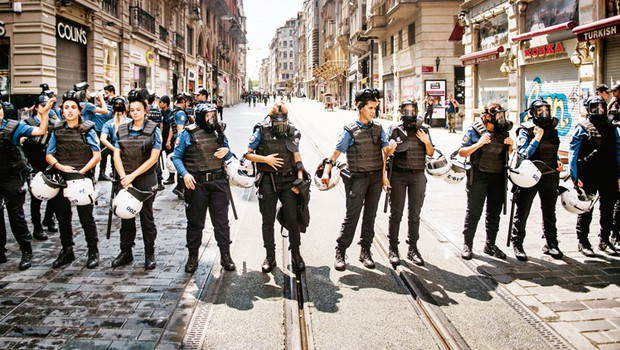
Sep 21, 2018 | Advocacy, News, Non-legal submissions
The ICJ wrote today to the Council of Europe’s Commissioner for Human Rights, Dunja Mijatović, to request action against the decision by Turkish authorities to ban entrance to Galatasaray square in Istanbul (Turkey) to a collective of mothers of disappeared persons called “Saturday Mothers”.
On 25 August 2018 , the Sub-Governorship of Beyoğlu District of İstanbul announced the prohibition of gatherings for assembly of any type of demonstrations in Galatasaray Square in Istanbul, the square where the Saturday Mothers have gathered every Saturday since 1995 to 1998 and since 2009 until 2018.
On the 700th week of their peaceful protests, the Saturday Mothers and their supporters congregated in Galatasaray Square at midday to once again raise awareness of the need for those responsible to be held accountable for the extrajudicial killings and enforced disappearances following their time in State custody in the 1990s. The police used tear gas to stop the protest and arrested 47 people. All were released by Saturday evening.
Senior officers of the Turkish authorities have even issued statements accusing the Saturday Mothers of being abused by or in collusion with terrorist organisations.
The ICJ wrote to the European Commissioner for Human Rights, that it “considers this situation to be at odds with Turkey’s obligations under international human rights law, in particular of the right to peaceful assembly under article 11 of the European Convention on Human Rights and article 21 of the International Covenant on Civil and Political Rights.”
The ICJ further added that “given the consistent record and presence of the Saturday Mothers in Galatasaray Square throughout the years, it is hard to see how the restriction on their right to peaceful assembly could in any way be necessary and proportionate to a legitimate purpose. It is clear that no prior warning for the gathering was needed for security reasons in light of its regular occurrence at least since its resumption in 2009, i.e. nine years ago. Furthermore, the demonstration took place on a pedestrian area where cars are not allowed.”
ICJ-Letter-SaturdayMothers-CoEComm-Turkey-2018-ENG (download the letter)
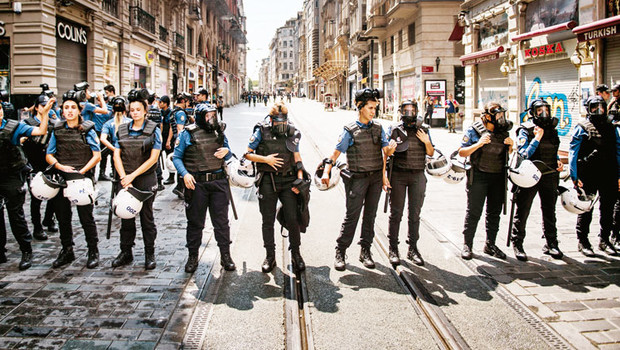
Sep 21, 2018 | Nouvelles, Plaidoyer
La CIJ a écrit aujourd’hui à la Commissaire aux droits de l’Homme du Conseil de l’Europe, Dunja Mijatović, pour demander d’intervenir contre la décision des autorités turques d’interdire l’accès à la place Galatasaray d’Istanbul (Turquie) à un collectif de mères de personnes disparues appelées « les Mères du samedi ».
Le 25 août 2018, le sous-gouvernorat du district de Beyoğlu à Istanbul a prononcé une interdiction de se rassembler pour tout type de manifestation sur la place Galatasaray à Istanbul, la place où ont pris l’habitude de se réunir chaque samedi « les Mères du samedi » d’abord de 1995 à 1998, et ensuite de 2009 jusqu’à 2018.
À la 700ème semaine de leurs manifestations pacifiques, les Mères du samedi et leurs partisans se sont réunis en milieu de journée sur la place Galatasaray pour sensibiliser une fois de plus sur la nécessité pour les responsables des exécutions extrajudiciaires et des disparitions forcées les années 1990 de rendre des comptes.
La police a utilisé des gaz lacrymogènes pour mettre fin à la manifestation et a arrêté 47 personnes. Toutes ont été libérées samedi soir.
Des officiers supérieurs des autorités turques ont même publié des déclarations accusant les Mères du samedi d’avoir été abusées par des organisations terroristes ou d’être en collusion avec elles.
La CIJ a écrit au Commissaire européen aux droits de l’Homme qu’elle « considère que cette situation est contraire aux obligations de la Turquie en vertu du droit international humanitaire, en particulier du droit de réunion pacifique en vertu de l’article 11 de la Convention européenne des droits de l’Homme et 21 du Pacte international relatif aux droits civils et politiques ».
La CIJ a ajouté que « compte tenu de la constance et de la présence des Mères du samedi sur la place Galatasaray au fil des ans, il est difficile de voir comment la restriction de leur droit de réunion pacifique pourrait être nécessaire et proportionnée à un objectif légitime.
Il est clair qu’aucun avertissement préalable pour le rassemblement n’était nécessaire pour des raisons de sécurité compte tenu de son occurrence régulière au moins depuis sa reprise en 2009, c’est-à-dire il y a neuf ans. En outre, la manifestation a eu lieu dans une zone piétonne où les voitures ne sont pas autorisées ».
ICJ-Letter-SaturdayMothers-CoEComm-Turkey-2018-ENG (télécharger la lettre, uniquement disponible en anglais)
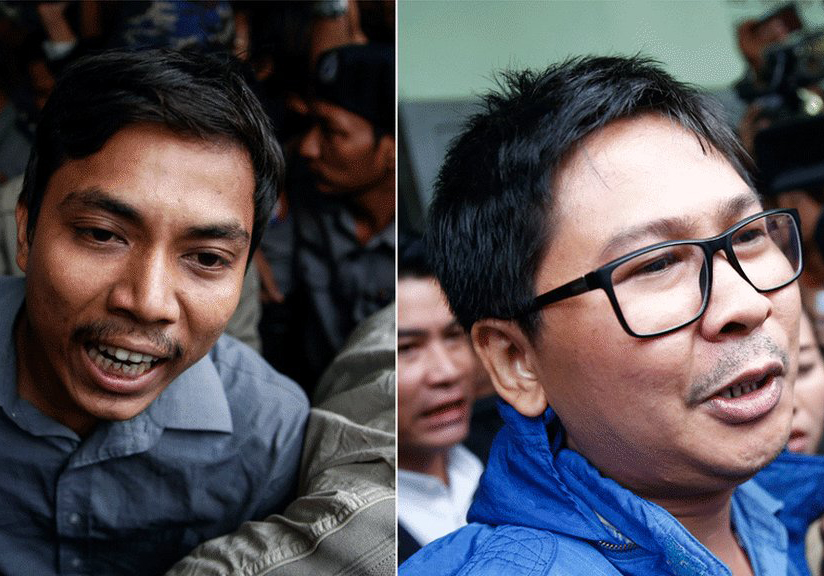
Sep 3, 2018 | Communiqués de presse, Nouvelles
La décision du Tribunal de District de Yangon de condamner aujourd’hui les journalistes de Reuters, Wa Lone et Kyaw Soe Oo, à sept ans d’emprisonnement pour violation de la loi sur les secrets officiels porte gravement atteinte aux droits de l’Homme et à l’état de droit au Myanmar.
“La décision de la Cour punit dans les faits ces deux journalistes courageux pour avoir dénoncé des violations des droits de l’Homme, à la suite d’un procès manifestement inéquitable”, a déclaré Frederick Rawski, directeur de la CIJ pour l’Asie-Pacifique.
“La décision est une erreur judiciaire qui leur inflige des souffrances inutiles ainsi qu’à leurs familles, menace la liberté d’expression, porte atteinte à la réputation mondiale du Myanmar et sape ses institutions judiciaires en même temps”, a-t-il ajouté.
La CIJ a suivi l’affaire depuis la détention initiale des journalistes en décembre 2017.
Comme indiqué précédemment par la CIJ, la détention et le procès ont violé de nombreuses garanties fondamentales relatives à l’équité des procès.
Les procureurs avaient le devoir d’abandonner les accusations et le juge aurait dû rejeter l’affaire en raison de l’absence de preuves et de l’illégalité de la détention en raison de violations du droit à un procès équitable.
“L’affaire est emblématique de la manière dont le système judiciaire finit par renforcer l’impunité des militaires plutôt que de la remettre en cause”, a déclaré M. Rawski.
“Le résultat sape les affirmations du gouvernement selon lesquelles il peut rendre des comptes par lui-même sur les violations des droits de l’Homme, et ne fait rien pour que le système judiciaire agisse de manière indépendante et impartiale après des décennies de régime militaire”.
Les membres des forces de sécurité jouissent généralement de l’impunité pour la perpétration de violations des droits de l’Homme, notamment pour des crimes en droit international.
La CIJ a déjà rapporté que les victimes et leurs familles, ainsi que les journalistes, font souvent l’objet de représailles pour avoir diffusé des informations sur les violations des droits de l’Homme commises par l’armée.
Wa Lone et Kyaw Soe Oo ont été arrêtés en décembre 2017 et détenus au secret pendant près de deux semaines avant d’être accusés, en vertu de la loi sur les secrets officiels datant de l’époque coloniale, pour avoir prétendument été en possession de documents liés aux opérations des forces de sécurité dans le nord de l’État de Rakhine, lors “d’opérations de nettoyage”.
Les deux reporters avaient dénoncé des violations des droits de l’Homme dans l’État de Rakhine, notamment l’assassinat de Rohingyas par l’armée dans le village d’Inn Dinn.
Dans un rapport publié la semaine dernière (uniquement disponible en anglais), la mission d’enquête internationale indépendante des Nations Unies a constaté que les forces de sécurité avaient commis des crimes en droit international au cours de ces opérations, notamment des crimes contre l’humanité et peut-être un crime de génocide.
La détention et la mise en accusation de quiconque, y compris de journalistes, se basant uniquement sur la collecte et la publication de preuves pertinentes en matière de violations graves des droits de l’Homme constituent une violation du droit international et des normes relatives à la liberté d’expression, au droit de participer à la conduite des affaires publiques et au rôle des défenseurs des droits de l’Homme.
Les options légales disponibles pour les journalistes incluent de requérir à la décision d’aujourd’hui et demander une grâce présidentielle.
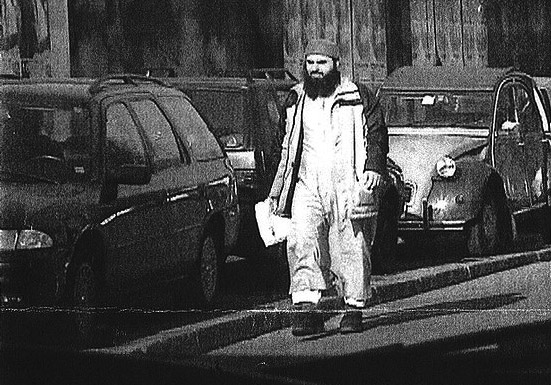
Sep 3, 2018
Today, the ICJ called on the President of the Council of Ministers, Giuseppe Conte, to remove the legal obstacles that for over a decade have frustrated justice in the case of Abu Omar, a victim of gross human rights violations during the so-called war on terror launched by the US in the 2000s.
Specifically, the organization said that the doctrine of “secret of state” , which shields from public and judicial disclosure information purported to affect national security interests, should be lifted in any case pertaining to the rendition of Abu Omar.
In a letter to President Conte, the President of the ICJ, Robert K. Goldman, recalls that Italy has been condemned by the European Court of Human Rights for its complicity in the unlawful rendition and enforced disappearance of Abu Omar and that Italy has a duty under international law to do all that is possible to unveil the truth to the victims and the general public about such crimes under international law.
“The Italian public has a right to know the truth about a gross violation of human rights that occurred in its country and about the role its own secret services and institutions played in it”, said Massimo Frigo, Senior Legal Advisor for the ICJ’s Europe Program.
“President Conte should lift state secrecy on this case right away, to demonstrate that he holds true to Italy’s obligations under international law and transparency and accountability of Government before its people.”
The ICJ noted that the European Court of Human Rights has determined, in Nasr and Ghali v. Italy, that Italian government violated human rights, including by allowing for effective impunity for such crimes despite the laudable efforts of the Italian judiciary to prosecute and try those responsible,” said Massimo Frigo.
“It is time for Italy to live up to its international obligations and show to the world and its people that gross violations of human rights and crimes under international law will not be tolerated and that accountability must be upheld at all times and without hesitation,” he added.
Background
Hassan Mustafa Osama Nasr (also known as Abu Omar) is an Egyptian national who was kidnapped in the streets of Milan in 2003 by CIA operatives, with the collaboration of Italian agents, while he was living in Italy with refugee status.
He was then subjected to torture and other cruel, inhuman or degrading treatment during his travel to Egypt and in Egypt, where he endured several years in arbitrary detention.
The rendition of Abu Omar, that also constituted an enforced disappearance under international law, was investigated and prosecuted by the Public Prosecutor’s Office of Milan and tried in the criminal tribunal, court of appeal of Milan and Court of Cassation.
This has been the only known prosecution and trial anywhere in the world against State agents alleged to be responsible for human rights violations in the context of the US-led rendition and secret detention system.
While 23 US agents and three Italian citizens were convicted – though without serving their sentences – the apex of the Italian military secret service (then SISMI) could not be tried because the Government invoked the doctrine of state secrecy in the proceedings.
The European Court of Human Rights found unanimously that that Italy had been complicit in the operation and had breached its obligations to prohibit and investigate torture and inhuman of degrading treatment of punishment (article 3 ECHR); the right to liberty of Abu Omar (article 5 ECHR); the right of his wife, Nabila Ghali, not to be subject to inhuman or degrading treatment caused by the suffering of not knowing the whereabouts of her husband (article 3 ECHR); their right to family life, and their right to an effective remedy for human rights violations (article 13 ECHR).
The judgment is still awaiting full execution by the Italian authorities, although there have been payments to the victims.
Contact:
Massimo Frigo, Senior Legal Advisor for the ICJ’s Europe Program
E-mail: massimo.frigo(a)icj.org
Italy-justice for Abu Omar-advoacy-open letters-2018-eng [Open Letter in English PDF]
Italy-justice for Abu Omar-news-press releases-2018-ita [Press Release in Italian PDF]
Italy-justice for Abu Omar-advocacy-open letters-2018-ita [Open Letter in Italian PDF]









